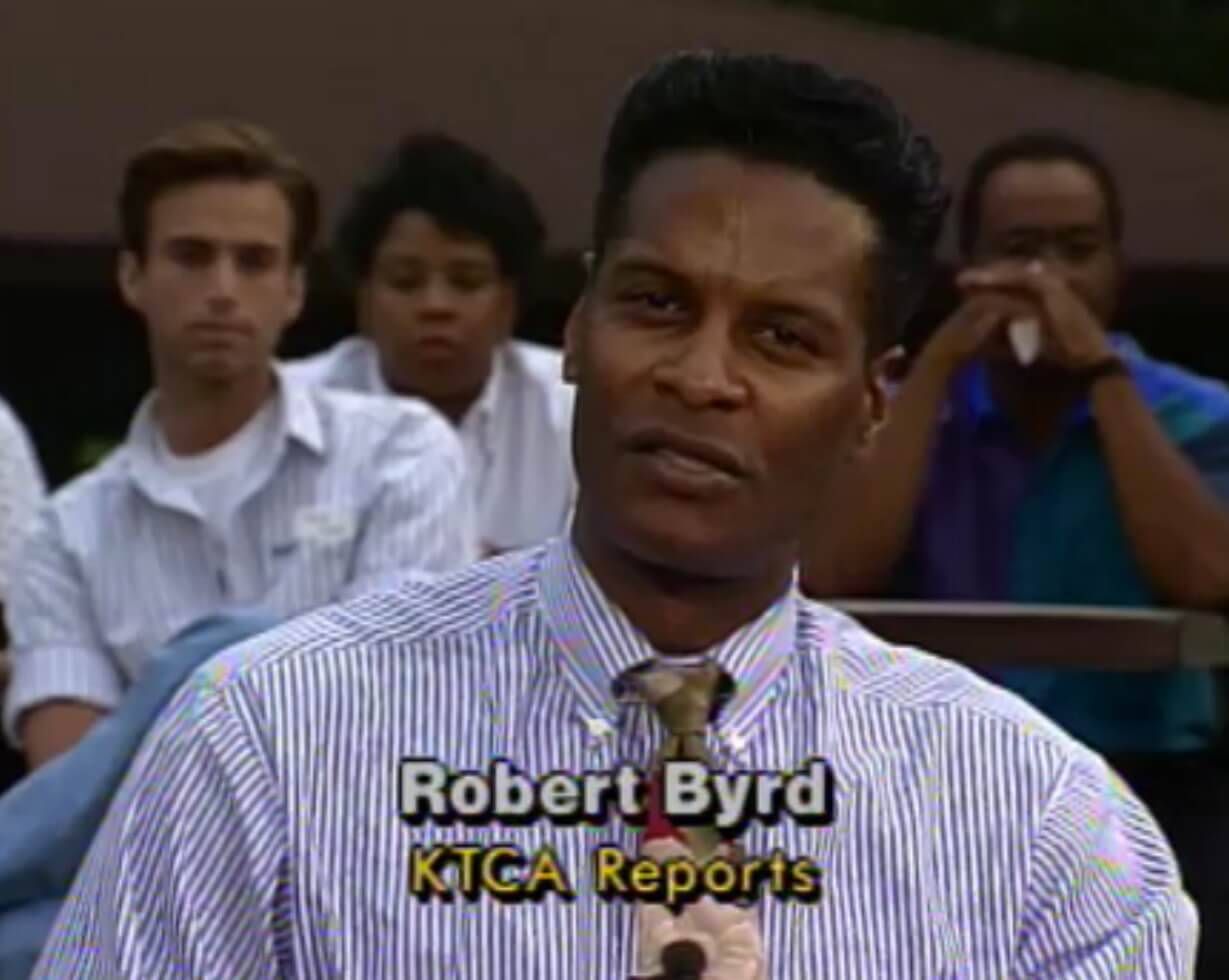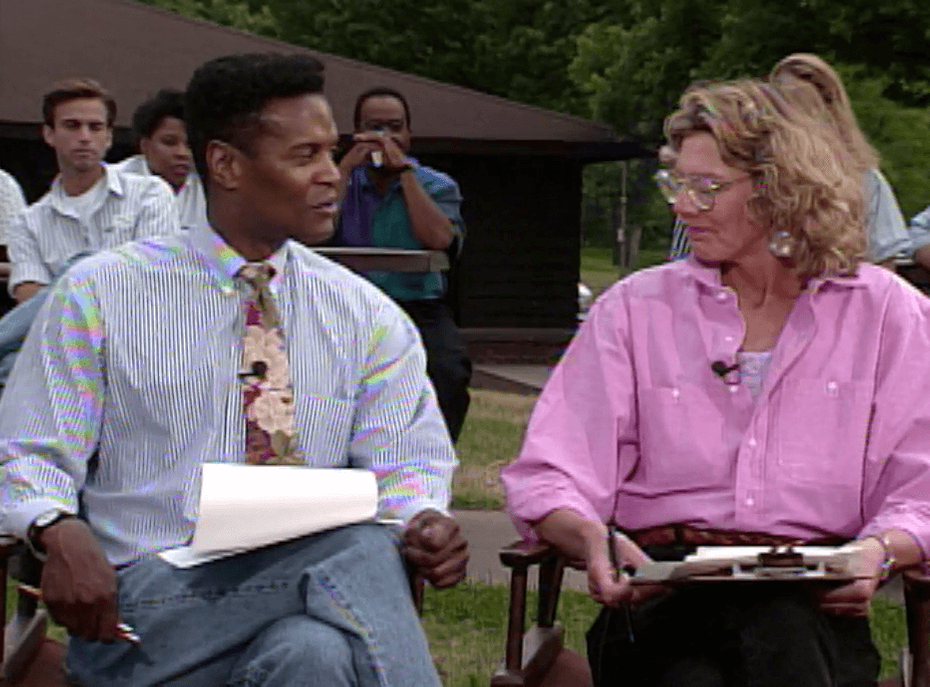Remembering KTCA's Fearless Producer Robert Byrd
As adept on camera as he was at encouraging aspiring filmmakers, Robert Byrd was a community force. He passed away on March 23, 2019.

As cold as it was outside, it was intense inside. I was sitting in the dark living room of a home in Minneapolis' Central Neighborhood surrounded by members of the infamous gang, the Vice Lords. But I was safe and so were they. Robert Byrd was there.
In the winter of 1991, Robert and I, along with our crew from Twin Cities PBS, were there to interview the gang members about a Black businessman who was trying to offer them education and intervention. Being from this neighborhood, I was a bit anxious and on edge. But Robert conducted the on-camera group conversation with the Vice Lords - and he did it with fairness and fearlessness, qualities that run through all of his interviews. They felt respected and listened to. That story would be a part of Robert’s landmark documentary Diary: Black Minnesotans for TPT (then KTCA.) The Diary series, and several compelling follow-up films, showed Robert Byrd to be a unique, keen-eyed filmmaker and conversation starter. His work is powerful and unforgettable. So was Robert.

Robert’s courageous, candid and compassionate interviews included neo-nazis, Native American elders, artists, cops, queer activists, homeless youth and countless others that most media makers didn’t care to - or didn't dare to - bring in front of the camera. Robert found himself in front of the camera, too, as his brimming intellect, his ability to be uber articulate and his leading-man good looks were too much for TPT executive producers to resist. But more than "talent," Robert had a unique ability to lead folks through difficult discussions (which could be on live TV, in a Jerome panel review or across the table of one of his impeccably prepared dinners.) His earnest interest in probing the tough issues facing America are on display in this surprisingly timeless look at race relations from a quarter century ago that took it's title from the plea of police beating victim Rodney King, who famously wondered if we can all "get along."
After a few years of stunning storytelling with Twin Cities PBS, Robert moved on. It was as if he had poured out so much as a producer that his job was done.
A new role with the Jerome Foundation was a perfect fit for Robert, as he was able to support, encourage, challenge and connect countless media artists, from Brooklyn, NY, to Brooklyn Center, Minn. In his work directing Jerome’s support for emerging media artists, Robert has helped seed Oscar and Sundance recognized films. Maybe more importantly, he has helped cultivate numerous and diverse media makers, just as he did when he hired me, a quiet filmmaker just out of college. I was excited and appropriately intimidated, when Robert hired me to be his production assistant at TPT in the early '90s. He was my boss, and became a mentor and friend. I always hear his firm, sonorous encouragement of me and my work. Like me, there are filmmakers across the country who continue to create because of Robert's influence. We should all aspire to his intense, but hopeful focus on using art to help us "all get along."

This story is made possible by the Arts and Cultural Heritage Fund and the citizens of Minnesota.
